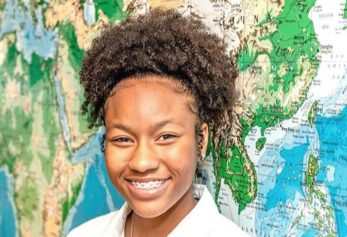A white mother’s struggle to confront racism while raising two Black children highlights the struggle with transracial adoption.
Speaker and author Jen Hatmaker and her husband, Brandon, are a couple who live outside Austin, Texas. They have five biological children and a son and daughter they adopted from Ethiopia. And as a family she described as being in “the center of the bullseye on privilege,” Hatmaker said she had to adjust her prejudices while raising Ben, 14, and Remy, 12.
“We entered — not just the adoption conversation but the race conversation — naive, inexperienced and ill-equipped,” she tells the “Today Show.” “Once I put myself under the really intelligent leadership of people of color, it was devastating to confront my own bias. And we began to discover a racial America that we just had the luxury to not see before.”
That luxury stemmed from the family’s white, married pastor, middle-class background, according to Hatmaker.
She added that her oldest biological children have also had to adjust their ways, admitting they weren’t always ones to call out racism. In fact, they may do quite the opposite.
“Maybe a few years ago they’d have looked the other way and maybe even participated. But now, this has also changed their lives.”
That doesn’t mean things are always perfect, however. Ben explained that there are white people who use the N-word, which he responds to by asking them to stop. And Hatmaker said she had a tough conversation with daughter Remy early on.
“I remember her just saying, ‘Why do white people think they’re so much better than Black people, why? Is there something about us?’ And I sat there in front of her and cried my eyes out and I said, ‘Oh, no, no, no. You are beautiful and you are important and you are equal to anybody on this earth. … This is their problem.'”
And while the intentions of Hatmaker may be good (she hopes that by the time her children are grown, America will have realized racial equality), there are some often overlooked issues with transracial adoption.
The British Association for Adoption and Fostering told The Guardian how critical it is to acknowledge problems with identity that arise from such adoptions.
“ …One issue keeps cropping up —and that’s a sense of loneliness and isolation, a sense of not belonging,” said Savita de Sousa BAAF’s Black and minority ethnic policy consultant. “Adoption is a new identity and when you get the added challenges of people asking ‘Why do you look so different?’ you need to think about whether you are meeting the needs of children.”


